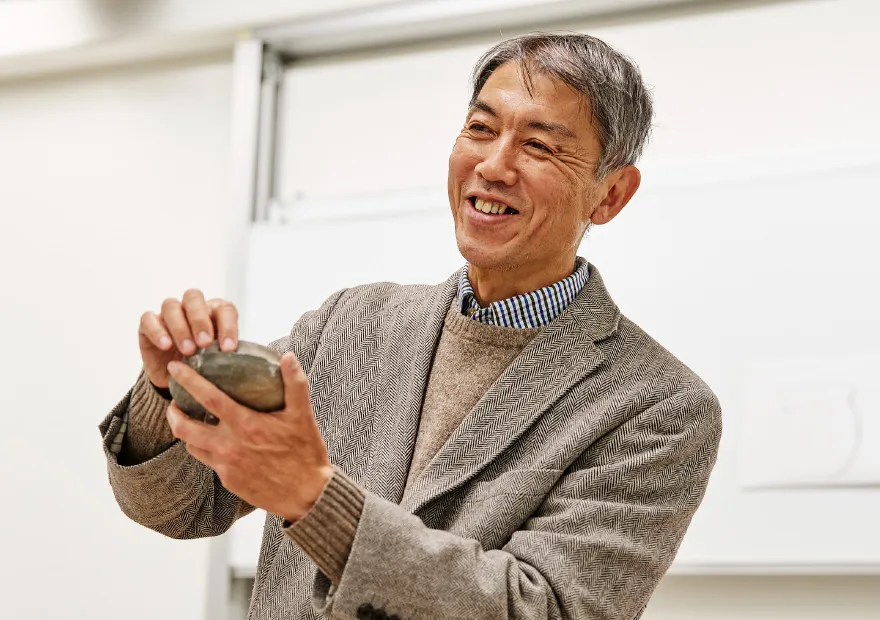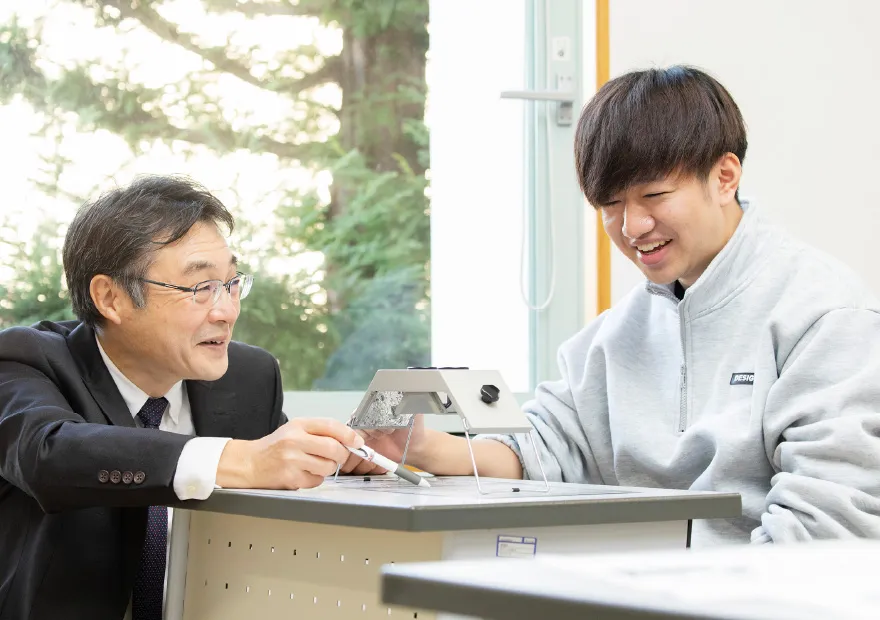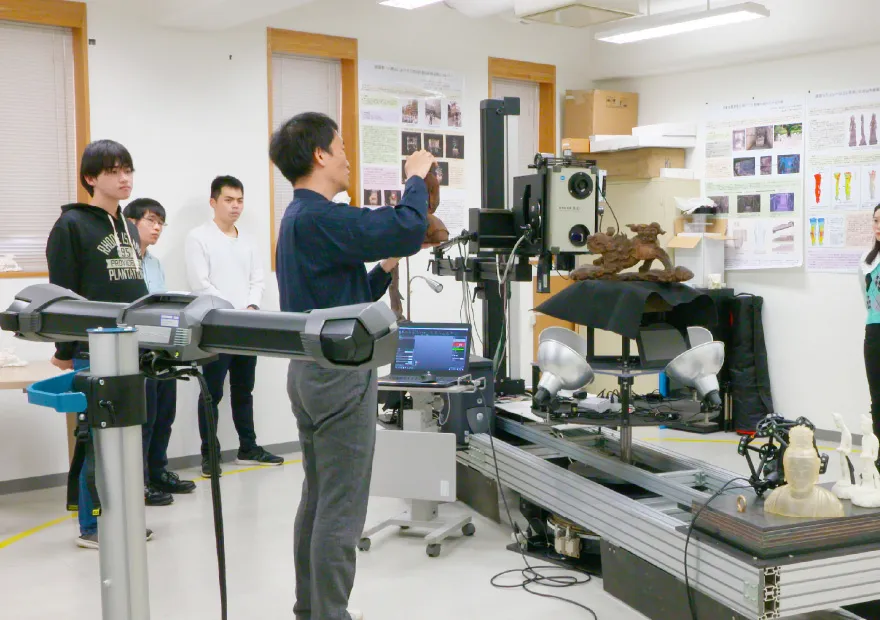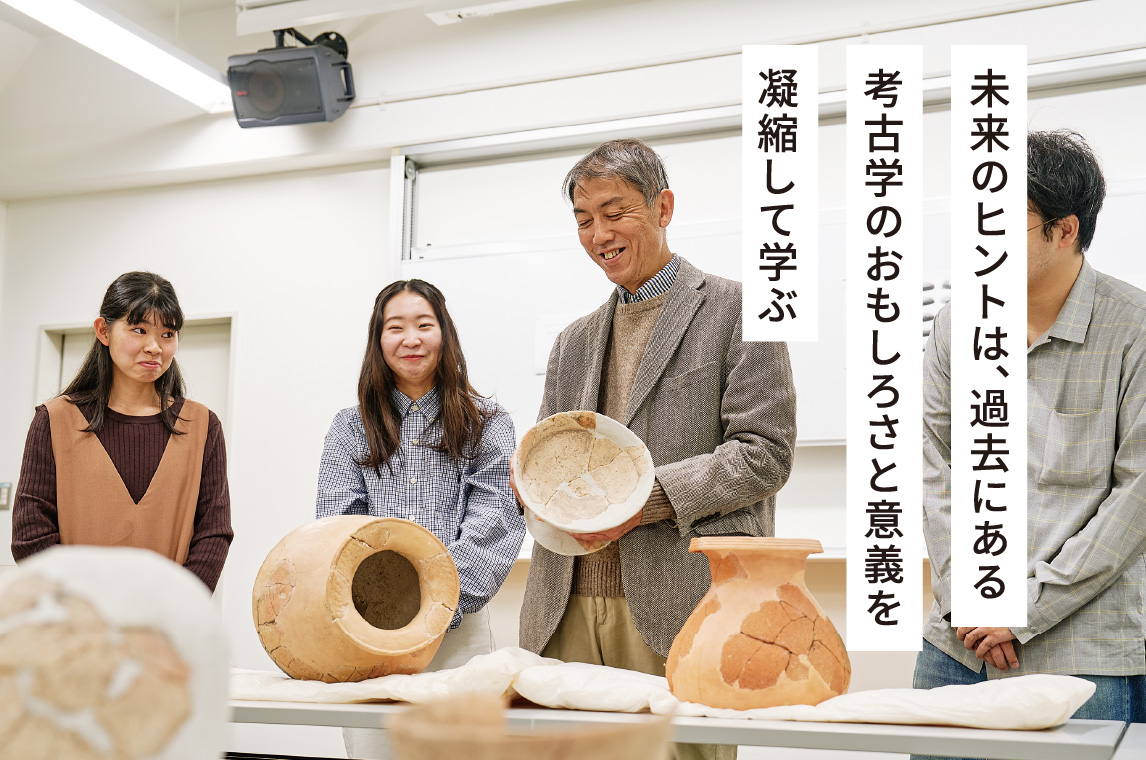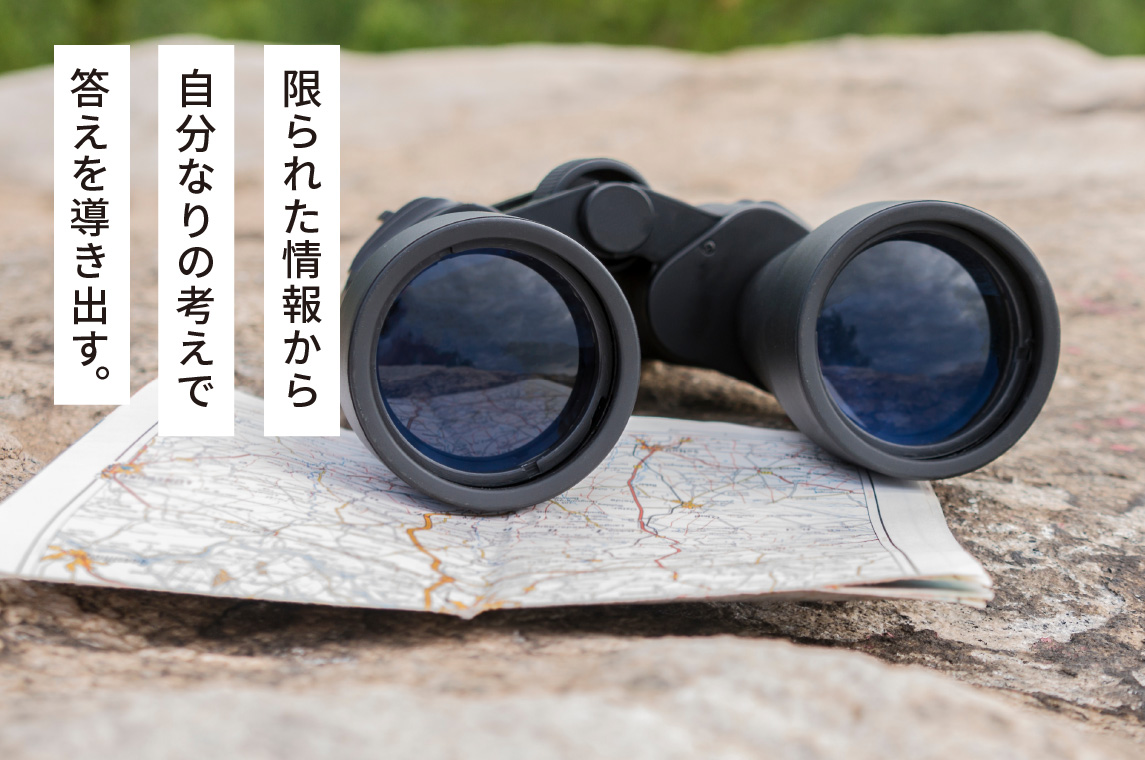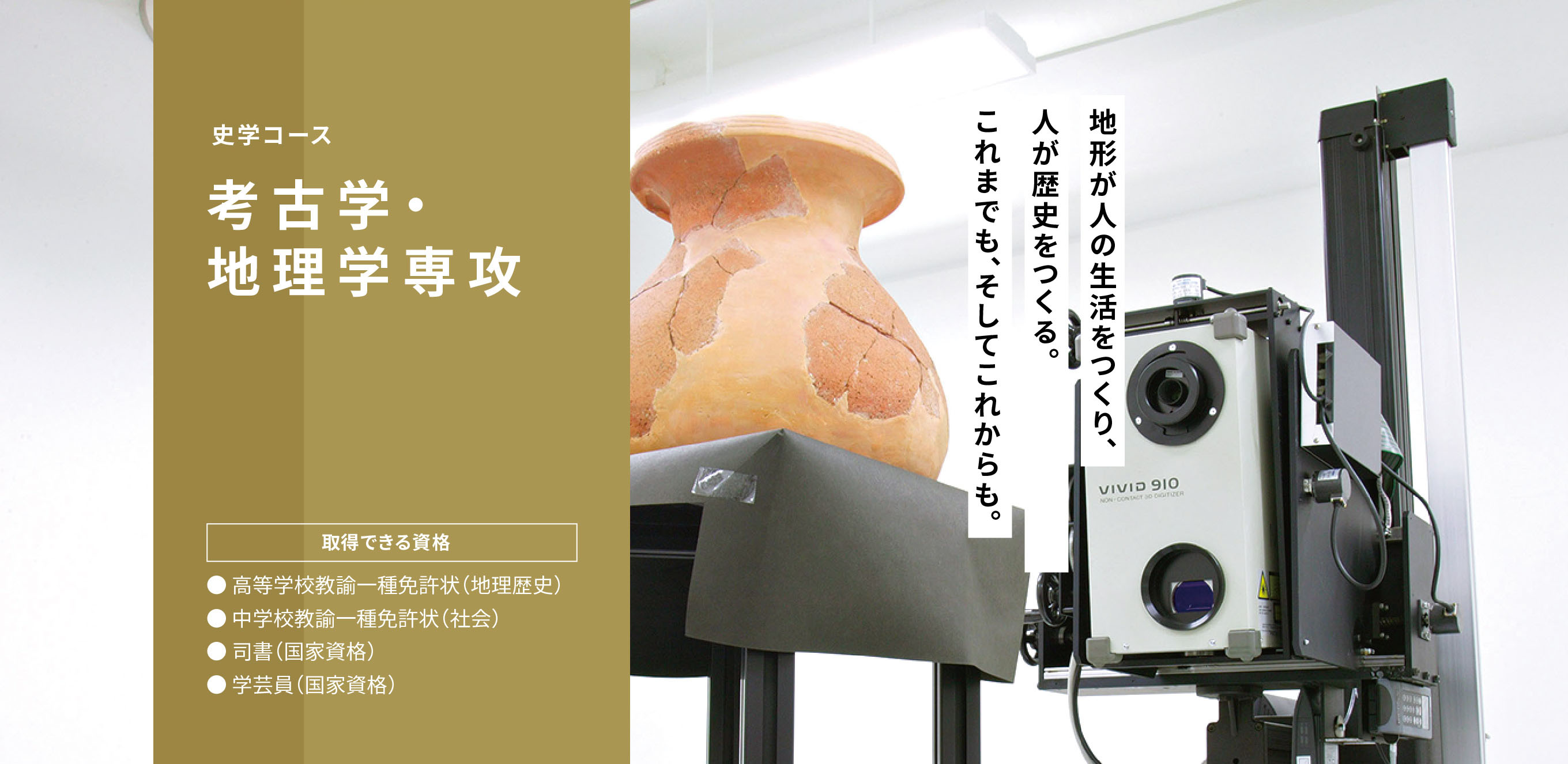
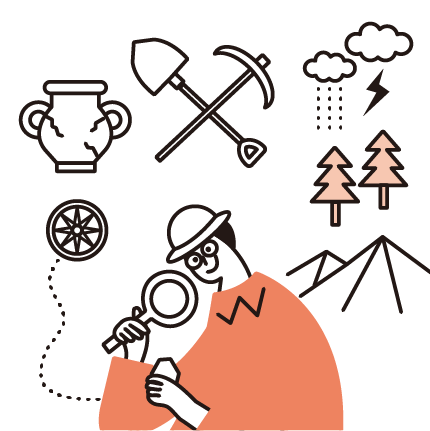
The origins of the world
Unravel,
Cultivate two perspectives.
Archaeology explores human activities and changes through the study of ruins and artifacts. Geography analyzes spaces on various scales, from towns to countries and the globe, and explores the relationships with economy and society, as well as the environment. It is full of fun to unravel the progress and activities of humankind.
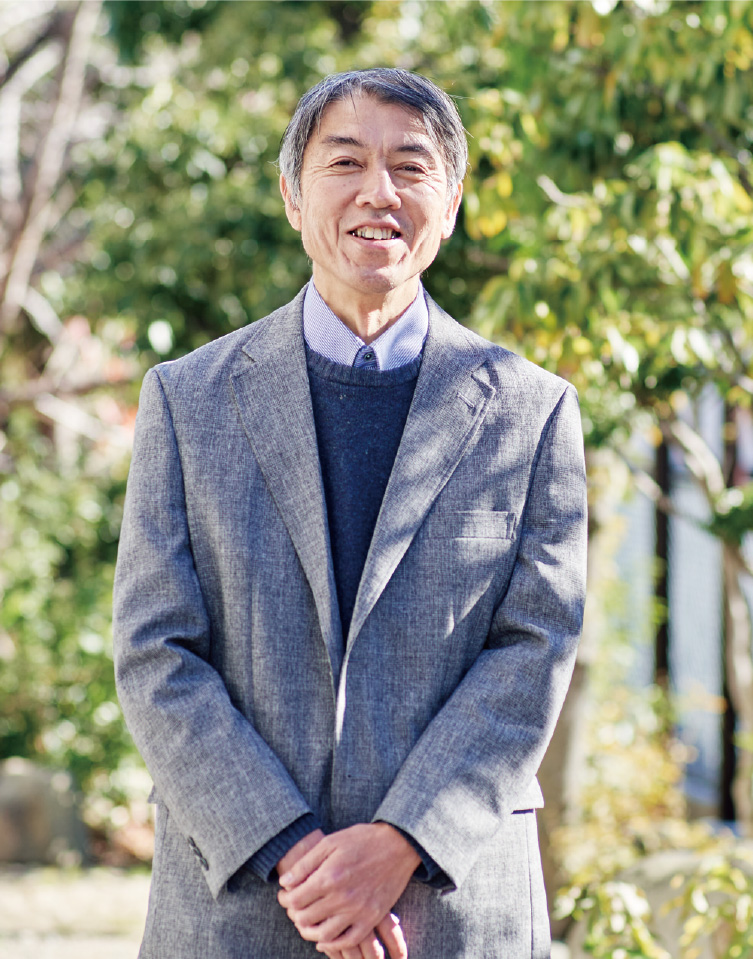
Knowing the meaning of learning,
To develop people who can connect cultural assets to the future.
Archaeology is the study of "history" through excavated remains and artifacts. The fun of studying history is researching various materials on your own, thinking about and reconstructing things based on the results of past research, and developing your own perspective. It is also important to organize what you have researched and communicate it in an easy-to-understand way. By learning about the eras and regions that interest you in your own way, you can acquire diverse perspectives on people and society.Shoji MorishitaProfessor Master of Arts
Key points for studying this major
-
- 1"History Research Institute"
Latest Facilities
etc.
A high-level learning environment. - History Research Institute is located on campus. In addition to housing valuable artifacts, it also has access to the latest equipment, including X-ray equipment to capture the inside of artifacts and laser 3D equipment to accurately measure shapes.
- 1"History Research Institute"
-
- 2Through on-site surveys,
Gain an “expert perspective.” - In addition to acquiring skills in interpreting aerial photographs and topographical maps, identifying active faults, and interpreting environmental changes, there are also plenty of opportunities to "see the site" at sites such as ancient tombs.
- 2Through on-site surveys,
-
- 3To utilize what we learn,
Basic expertise
To nurture. - In order to put to use the information acquired through research, investigations and analysis, students will hone their planning and presentation skills in seminars that involve literature searches, resume writing, presentations and discussions.
- 3To utilize what we learn,
Four-year learning process
-
- First grade
- What kind of fields are Archaeology and Geography? Introductory classes will help you understand the regions and themes.
-
- Second Year
- In addition to introductory lectures and specialized classes, students will deepen their knowledge and understanding of specialized fields through practical training.
-
- Third grade
- Students will learn highly specialized research and analytical methods that delve into specific themes, and also participate in field training.
-
- 4th grade
- Students will choose a research topic based on their interests and compile it into their graduation research while learning how to examine materials.


"History Research Institute" etc.
I was able to learn archaeology in the best possible environment.
There were other universities where I could study archaeology, but Otemae University was the only one with a specialized institute on campus called the "History Research Institute"! That's why I applied to this department. Even after enrolling, I was able to use the latest equipment at the "History Research Institute" and receive direct instruction from experts on how to measure and view artifacts, so I think I was able to accumulate the specialized learning I had hoped for. I also put into practice the "learning that transcends departments," which is one of the attractions of this university, and took classes not only related to archaeology, but also in fields that interested me, such as Japanese History, Oriental history, Japanese language studies, and manga.
Ryuka TaigaMr. Miss.
Graduated from Hyogo Prefectural Kakogawa Minami High School
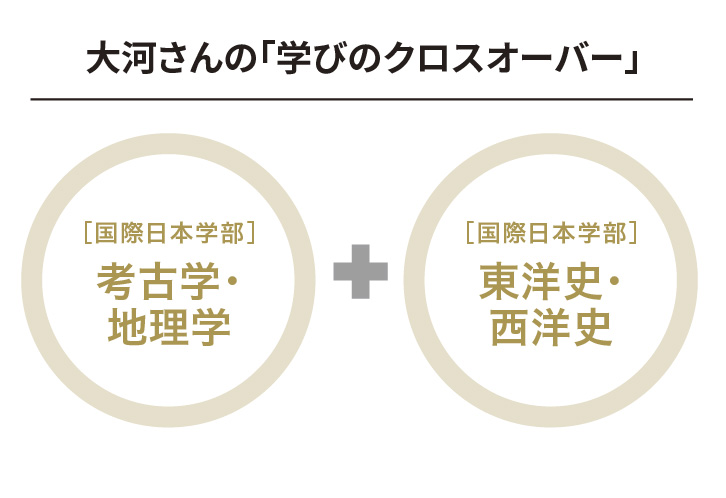

Pick Up Classes
Here
By research topic
- ● Research on Haniwa figures
- ● Yayoi period pottery with paintings
- ● Research on creating shopping streets linked to regional revitalization: A case study of Tenjinbashisuji Shopping Street
- ● Transformation of the region through anime "pilgrimages"
- ● Current status and issues of the tourism industry using Sasayama City, Hyogo Prefecture as an example
List of majors availableMajor subjects
Course names have been updated to make them easier to understand
- Japanese Studies and Asian Studies Course
- International Coexistence Course

